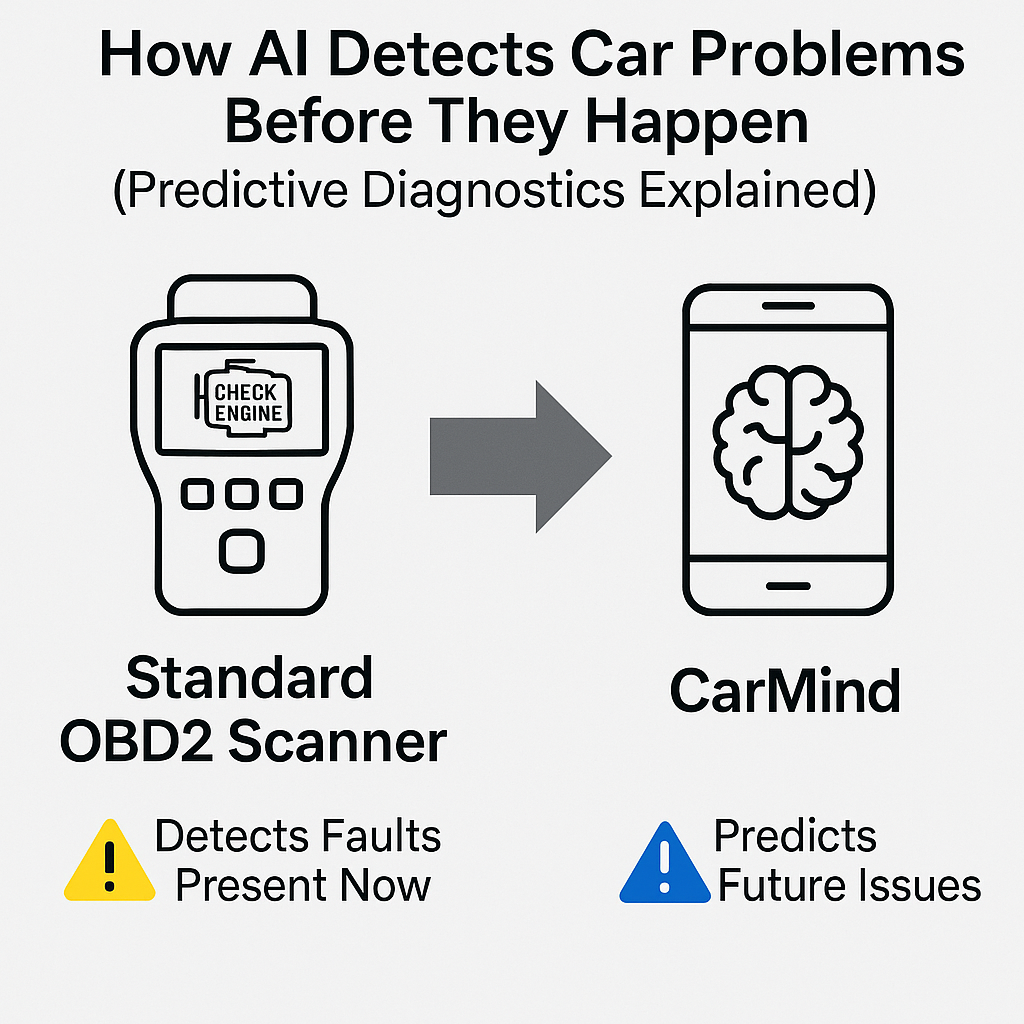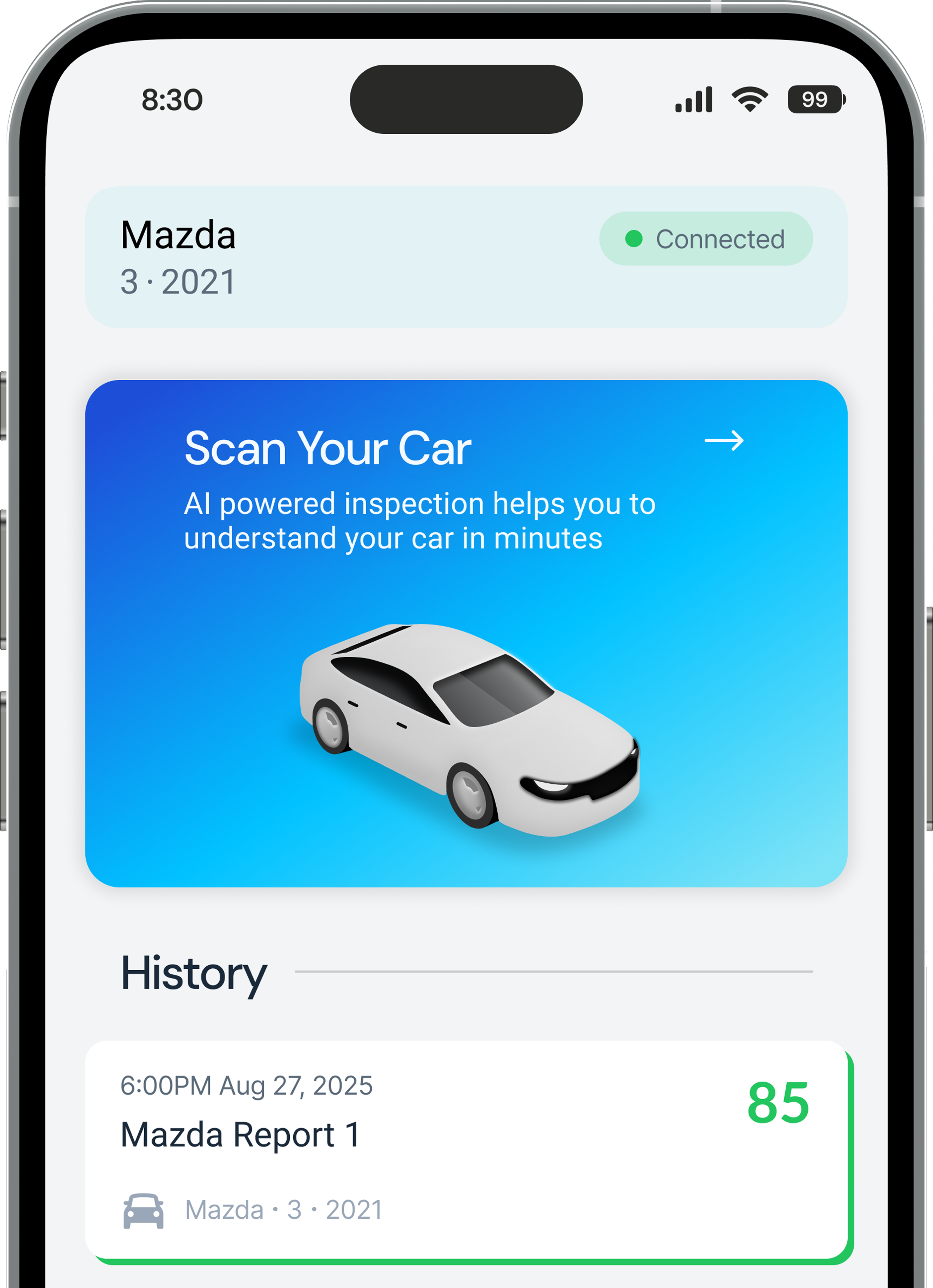
October 26, 2025

Most people only think about diagnostics after the Check Engine Light turns on.
But what if your car could tell you something’s wrong before it actually fails?
That’s the idea behind predictive diagnostics — the same principle used in aviation, manufacturing, and now, intelligent car systems like CarMind.
Traditional OBD2 scanners are reactive.
They only show codes once the car’s ECU has detected a fault serious enough to log a Diagnostic Trouble Code (DTC).
For example:
That means by the time the Check Engine Light turns on, the problem has already been there — quietly growing worse.
Even when no codes are stored, your car constantly produces live sensor data that reveals its condition in real time:
Small shifts in these values — often invisible to the driver — are the earliest signs of trouble.
For example: a 5% drift in long-term fuel trim might mean a small air leak developing weeks before any light appears.
Predictive diagnostics looks for patterns — not just codes.
It uses AI algorithms to analyze how different systems behave together and to detect trends that deviate from normal operation.
Let’s say your fuel trims are slightly lean and your oxygen sensor starts switching slower than usual.
Individually, those numbers seem fine.
But together, they suggest an air-fuel imbalance that could lead to a future misfire or a failing sensor.
CarMind’s AI Mode monitors this data continuously and compares it with thousands of healthy vehicle patterns.
When something starts drifting away from the expected range, it alerts you early — long before a DTC ever appears.
A driver notices no warning lights, just a slightly rough idle.
Traditional scanners show no codes.
CarMind, however, detects uneven combustion based on fuel trim fluctuation and O2 sensor timing.
It reports:
“Early-stage misfire pattern detected. Check spark plugs or ignition coils soon.”
A week later, the Check Engine Light finally comes on with P0302 – Cylinder 2 Misfire.
Because the issue was caught early, the driver replaced a $20 spark plug instead of a $1,200 catalytic converter.
That’s predictive diagnostics in action.
Predictive diagnostics isn’t just for engineers — it’s for anyone who wants to stop reacting and start preventing.
Here’s what it does for you:
Instead of waiting for your car to complain, you can now see what it’s feeling — in real time.
Just as health trackers evolved from counting steps to detecting heart rhythm anomalies, car diagnostics is shifting from fault detection to condition prediction.
Tools like CarMind are bringing that future to every driver — combining OBD2 data, AI interpretation, and predictive analysis into one easy-to-use system.
No engineering background required, just real insight into your vehicle’s health.
Traditional OBD2 scanners tell you what’s already broken.
AI-powered tools like CarMind detect irregular patterns early, predicting future failures before they cause damage.
That means fewer surprises, smarter maintenance, and complete control over your car’s health.
Find the right job faster with AI-powered matching, real-time updates, and powerful insights.
Check your car's health
Identify hidden issues
